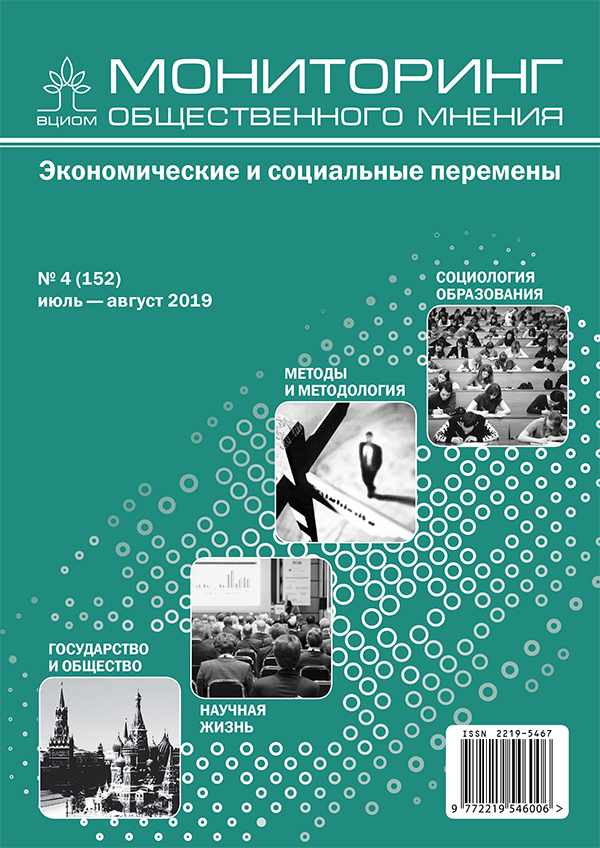Information and digital inequality: searching for effective population adaptation practices
DOI:
https://doi.org/10.14515/monitoring.2019.4.04Keywords:
digital stratification of the population, theoretical models of adaptation, adaptive practices, information and digital inequalityAbstract
Russian society has entered a period of rapid introduction of digital technologies into all spheres of life. In this context, professional, educative and leisure character of digital activity turned into a criterion defining each individual’s place on a scale of digital resources. The article analyzes the behavior of social groups in terms of their adaptation to digital technologies as well as the digital environment in the Russian regions and technological and behavioral criteria of people’s stratification on the “online-offline” scale. Studying adaptive practices of the inhabitants living in the Russian regions, their motivation to acquire certain digital skills is no doubt important as it has its theoretical and practical significance. The theoretical part of the article contains classification of adaptive practices, their analysis from the perspective of effectiveness, criteria and indicators measuring digital divide. The empirical part is grounded upon the data of cross-regional study “Information and digital inequality and ways to overcome it in the region” (2018). The questionnaire sample is representative of the population from Penza and Ulyanovsk oblasts living in different types of settlements (large cities, medium-sized cities, small cities, rural area), from different age groups and with different education backgrounds. The analysis of digital stratification shows that the technological access to online environment in different types of settlements of the Russian province outstrips the motivational and behavioral availability. Barriers to the use of digital resources are motivational, cognitive and economic and can be found across all age groups but most frequently among inhabitants of rural area, workers with elementary vocational education, poor and needy families. Those practices which deal with high levels of positive motivation, digital activity and literacy are the most effective among all adaptive practices. The core effective adaptants are young people, women, inhabitants of big cities, entrepreneurs, and specialists with higher education diplomas. The article describes what drives people with different types of social adaptation to enhance information and digital activity.
Acknowledgements. This article is supported by Russian Foundation for Basic Research (RFBR). Grant no.18-411-730009 “Information and digital inequality and ways to overcome it in the region”.






